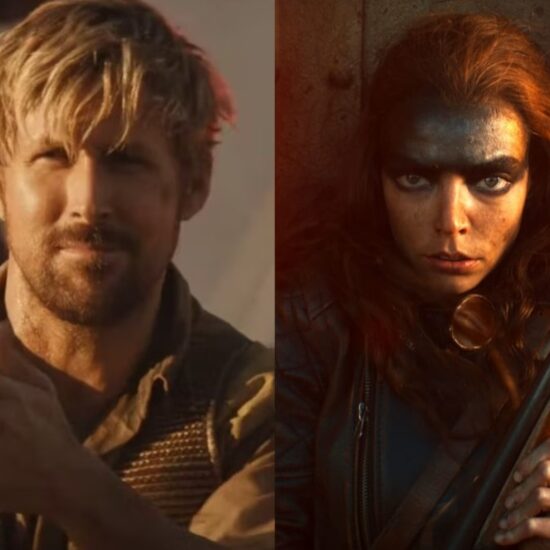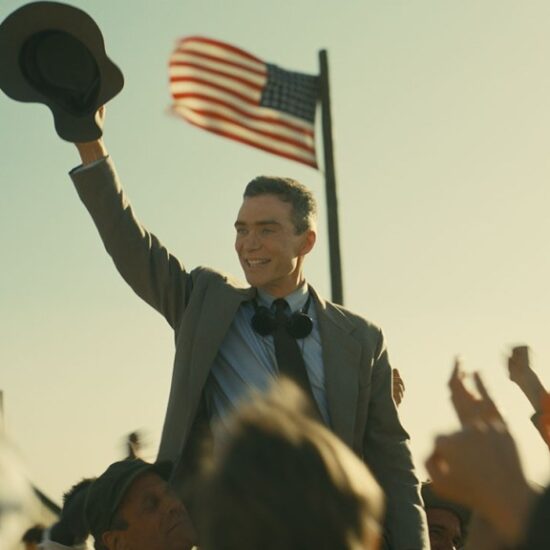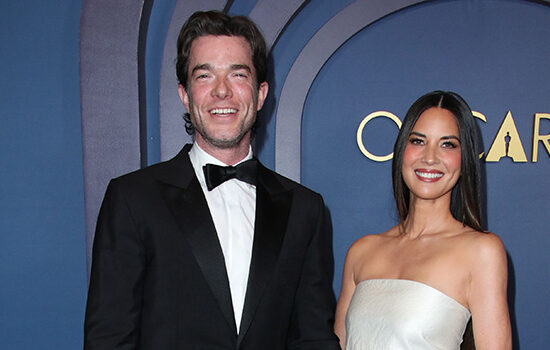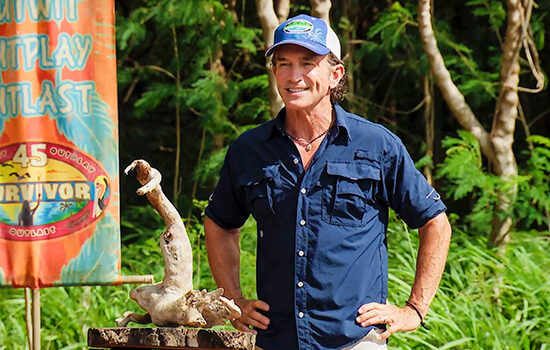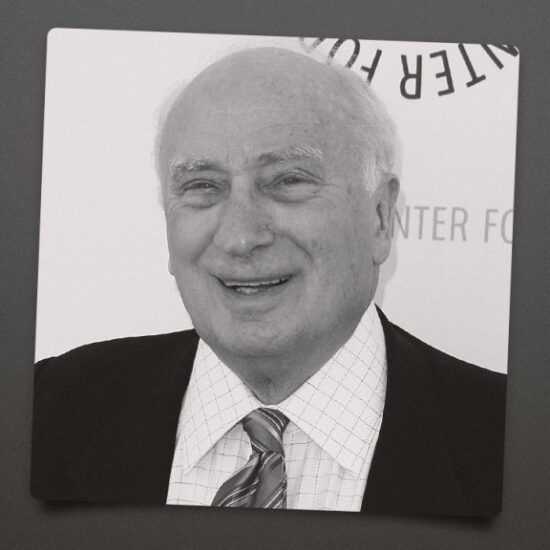
Told from the perspective of a young girl raised by her single gay father to be a woman who is “strong and tolerant and not afraid of this world,” Fairyland reveals the intensely personal nature of its origins in Alysia Abbott’s 2013 memoir at every step of the characters’ complicated evolution together. Like that sometimes strained relationship, this debut feature from photographer Andrew Durham often feels stuck, but eventually reaches its destination with clear-eyed compassion and an emotionally powerful reconciliation. Those qualities are captured with enormous sensitivity in the lead performances of Emilia Jones and Scoot McNairy.
With a producing team led by Sofia Coppola for American Zoetrope, this is a bittersweet drama about unconventional parenting and alternative families that will resonate loudest with LGBTQ audiences. But its surge of final-act feeling will speak to any audience that has ever experienced the startling reckoning that comes with grief.
Fairyland
The Bottom Line
Not always sure-footed but gets there in the end.
The film opens in 1974 with a middle-of-the-night phone call in which a stunned Steve (McNairy) learns that his wife has been killed in a head-on truck collision while driving with a patient she had been treating for suicidal depression. That detail will prove significant later on.
Steve’s 5-year-old daughter Alysia (Nessa Dougherty) is still struggling to comprehend her mother’s sudden absence when he packs them off from the Midwest to San Francisco in his beat-up orange VW bug. He rejects the suggestion of Alysia’s judgy maternal grandmother, nicknamed Munca (Geena Davis), that the girl would be better off being raised by her side of the family.
Alysia gets an eye-opening instant education when they move into a shared house with druggy den mother Paulette (Maria Bakalova), genderqueer Johnny (Ryan Thurston) and laid-back, guitar-strumming Southerner Eddie (Cody Fern), who occupies the couch but has a wife back in Jackson. That doesn’t stop him from falling into bed with Steve, a development Alysia appears to take on board with the same mix of curiosity and preternatural maturity that she brings to every magical discovery of the hard-partying Bohemian household.
In a funny phone conversation in which Munca grills her about life in San Francisco, Alysia talks enthusiastically of her new surrogate family, mentioning her closeness with Johnny, who wears dresses. “Does your father wear dresses too?” asks her grandmother, visibly stiffening. “Not anymore. He’s butch now,” Alysia replies cheerfully.
The choice to have cinematographer Greta Zozula shoot the early scenes in grainy 16mm adds to the vivid sense of time and place, rendered idyllic by frequent visits to Golden Gate Park, with its Dutch windmill and Victorian conservatory. Steve, Eddie and Alysia are seamlessly integrated into rousing archival footage of the Castro as a village teeming with gay men and early Pride parades, back when the event was called Gay Freedom Day.
Bringing a writer’s work to life with any kind of vitality can prove difficult even for seasoned filmmakers and Durham struggles a bit to make Steve’s development as a poet and essayist a dynamic part of the narrative.
Some of the cultural context also feels a bit clunky when it’s woven in via radio newscasts — the Proposition 6 ballot initiative that aimed to ban gays and lesbians from working in California’s public schools; the Harvey Milk assassination; Anita Bryant’s crusade against homosexuality, her role with the Florida Citrus Commission prompting Steve to yank the OJ off the breakfast table.
The movie is on steadier ground when its focus stays tight on the shifting relationship between Steve and Alysia, particularly as it moves into her high school years, when Jones steps into the role. While the young Alysia seems unfazed by the steady stream of her dad’s boyfriends following Eddie’s return to Mississippi — one of the longer-term fixtures, Charlie, is played with warmth and humor by Adam Lambert — the teenage Alysia begins to pull away.
By that point, Alysia is a Brit pop-loving hipster into Depeche Mode and OMD, rocking assymetrical hair and outsize jackets. (Jones is lovely in these scenes, recalling a young Winona Ryder.) But Alysia becomes a little less cool about her father’s sexuality, just as the first murmurs about a “gay cancer” begin circulating. When she’s out hitting the clubs or the thrift stores with her best friends Yayne (Bella Murphy) and punky Skid (Isabella Peregrina), Alysia says nothing about the latter’s constant homophobic jokes and keeps them both at a distance from Steve.
The real conflict between them, however, is less about Steve being gay than him not being enough of a parent. He romanticizes the poverty of the artist while his daughter wants more comforts. And although he’s convinced that making her self-reliant from a young age would help Alysia figure out who she is, she comes to resent having been given too much independence and not enough parental attention. She’s also angered by him sharing private details of their lives in poetry readings, including things about her mother that Alysia was too young to understand at the time.
No doubt taking his cue from Abbott’s memoir, Durham deserves credit for refusing to idealize Alysia’s countercultural upbringing as a perfect balance. But there are poignant moments in which Steve defends himself, telling her she has different freedoms to what he had at her age, when he had to pretend to be someone else.
Their relationship becomes somewhat more distant when Alysia goes off to college at NYU, and then to study in Paris for a year, where she falls into her first serious relationship with sweet-natured Frenchman Theo (Ben Attal). But on visits back to San Francisco, she witnesses the ravages of AIDS at a time when the Reagan government is doing nothing about it. The reality of it becomes especially confronting when she meets JD (Cabe Thompson), an ailing young man being cared for by her dad in a neighborhood hospice.
A lot of the storytelling tends to amble along without much edge, viewed through the haze of nostalgia and graced with appropriate needle drops. But deeper feeling kicks in once Alysia gets the inevitable phone call summoning her home from France to care for her father.
The pathos and intimacy of that final section no doubt is strengthened by the close parallels between Abbott’s experience and that of writer-director Durham, who also grew up in San Francisco during the same period with a gay father, moving in to care for him through the final months of his life.
A quietly searing scene between Jones and Bakalova, when Paulette has left her partying days behind and settled into work as a pharmacist, fully opens Alysia’s eyes to the heartrending reality of living in a close-knit community where friends are constantly dying. And in a rare outing to the park where so much of their early time together was spent, Steve forces himself to shake off the pain and confusion of advanced illness long enough to explain to Alysia that he had no idea how to be a single parent. He infers that his stalled life as a gay man means that in a sense he was coming of age at the same time as his daughter.
It’s a beautiful scene, played with piercing sincerity and tenderness by McNairy, and it makes this overlong, sometimes underpowered film ultimately rewarding.
Full credits
Venue: Sundance Film Festival (Premieres)
Production companies: American Zoetrope, in association with Artemis, Black Magic, Ourboros Entertainment, Safe Space Pictures
Cast: Emilia Jones, Scoot McNairy, Geena Davis, Cody Fern, Adam Lambert, Maria Bakalova, Nessa Dougherty, Ryan Thurston, Bella Murphy, Isabella Peregrina, Ben Attal, Cabe Thompson, Roman Gonzalez
Director-screenwriter: Andrew Durham, based on Alysia Abbott’s book Fairyland: A Memoir of My Father
Producers: Sofia Coppola, Megan Carlson, Siena Oberman, Greg Lauritano, Laure Sudreau
Executive producers: Roman Coppola, Michael Musante, Alysia Abbott, Elena Baranova, Susan Landau Finch, Rebecca Gang, Gary Hamilton, Ryan Hamilton, Anton Lessine, Jesse Ozeri, Brooks Price, Karen Salveson, Sasha Shapiro, Nicole Alexandra Shipley, Jeffrey Sobrato, Eileen Spitalny, Mike Spitalny, Ying Ye
Director of photography: Greta Zozula
Production designer: Olivia Kanz
Costume designer: Maggie Whitaker
Music: Michael Penn
Editors: Peter Cabadahagan, Lawrence Klein
Casting: Nina Henninger, Sarah Kliban
1 hour 54 minutes








